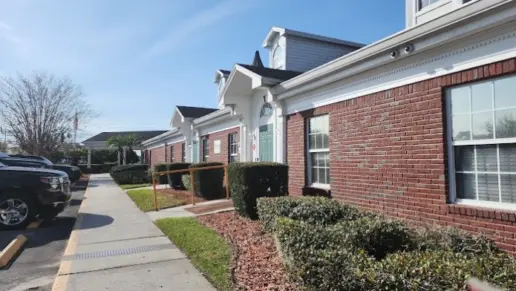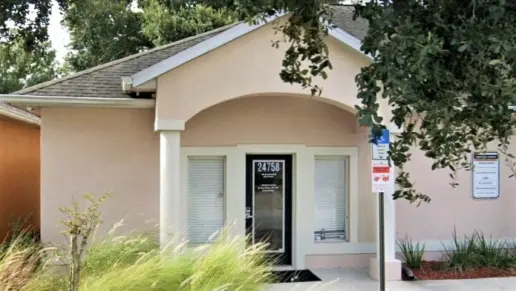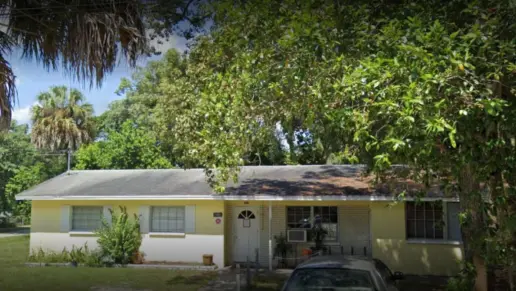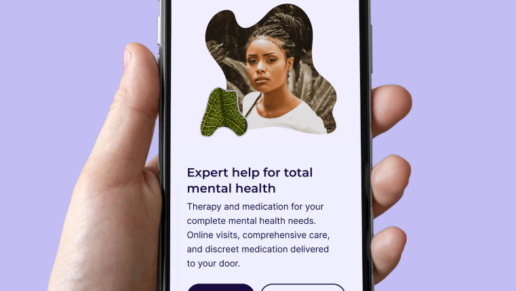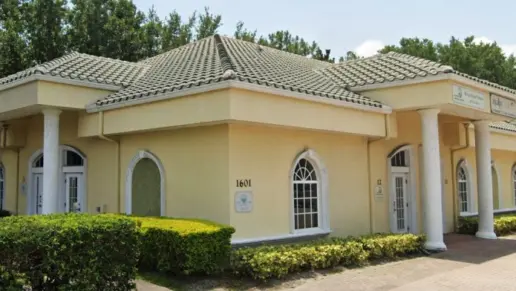About 12 Keys Rehab
12 Keys Rehab, based in Jensen Beach, Florida was a leading addiction treatment center that had built its reputation on its individualized approach to recovery from drug and substance abuse addiction. They helped keep those who struggle with addiction healthy. Their comprehensive method assisted clients in targeting the root causes of addiction and led to a more complete recovery process.
12 Keys Rehab did accept insurance from most carriers to provide affordable treatment for patients who need help. Admissions collaborated with clients to ensure insurance coverage and assist in financial planning for treatment, preventing finances from getting in the way of recovery.
A really great feature was their treatment programs for medically supervised detox, residential inpatient or intensive outpatient levels. Cognitive-behavioral therapy, dialectical behavior therapy and trauma-informed care were among the therapies offered by this center.
Clients were also given the option of holistic therapies such as meditation and equine therapy to help heal physically, mentally and spiritually. It also included family therapy that helped the client build relationships and rebuild a healthy environment for their recovery.
The program was also popular amongst patients who have finished treatment, many of whom credit the facility’s caring and professional staff for their recovery. Clients praised the supportive community and expressed that their healing was helped by distance as it is promised to be a peaceful respite from daily pressures.
Latest Reviews
Rehab Score
Gallery
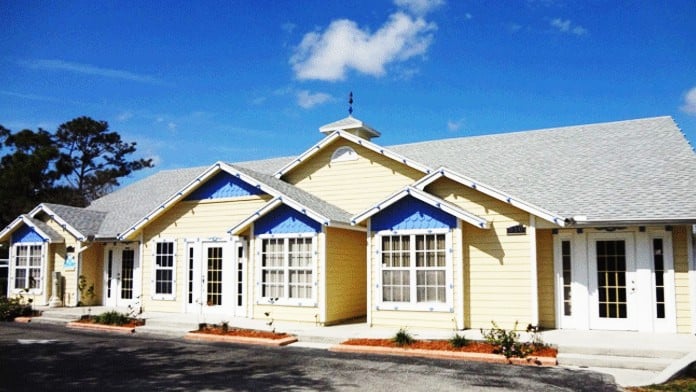
Location
Accepted Insurance
Other Forms of Payment
Self-pay involves paying for treatment out of your own pocket. You can use savings or credit, get a personal loan, or receive help from family and friends to fund your treatment. If you don't have insurance or your insurance plan doesn't cover a specific program, self-pay can help ensure you still get the care you need.
Private insurance refers to any kind of healthcare coverage that isn't from the state or federal government. This includes individual and family plans offered by an employer or purchased from the Insurance Marketplace. Every plan will have different requirements and out of pocket costs so be sure to get the full details before you start treatment.
Military members, veterans, and eligible dependents have access to specific insurance programs that help them get the care they need. TRICARE and VA insurance can help you access low cost or no cost addiction and mental health treatment. Programs that accept military insurance often have targeted treatment focused on the unique challenges military members, veterans, and their families face.
Addiction Treatments
Levels of Care
Treatments
The goal of treatment for alcoholism is abstinence. Those with poor social support, poor motivation, or psychiatric disorders tend to relapse within a few years of treatment. For these people, success is measured by longer periods of abstinence, reduced use of alcohol, better health, and improved social functioning. Recovery and Maintenance are usually based on 12 step programs and AA meetings.
Drug rehab in Florida provides quality treatment to help individuals overcome dependency related to a wide range of addictive substances. Programs address both the physical and mental aspects of addiction in order to help you make a full recovery.
Many of those suffering from addiction also suffer from mental or emotional illnesses like schizophrenia, bipolar disorder, depression, or anxiety disorders. Rehab and other substance abuse facilities treating those with a dual diagnosis or co-occurring disorder administer psychiatric treatment to address the person's mental health issue in addition to drug and alcohol rehabilitation.
A combined mental health and substance abuse rehab has the staff and resources available to handle individuals with both mental health and substance abuse issues. It can be challenging to determine where a specific symptom stems from (a mental health issue or an issue related to substance abuse), so mental health and substance abuse professionals are helpful in detangling symptoms and keeping treatment on track.
Opioid rehabs specialize in supporting those recovering from opioid addiction. They treat those suffering from addiction to illegal opioids like heroin, as well as prescription drugs like oxycodone. These centers typically combine both physical as well as mental and emotional support to help stop addiction. Physical support often includes medical detox and subsequent medical support (including medication), and mental support includes in-depth therapy to address the underlying causes of addiction.
Programs



Clinical Services
Cognitive behavioral therapy, or CBT, is a practical method for changing your thought patterns and attitudes. These thought patterns and attitudes are believed to exist underneath unhealthy or destructive behaviors. When working through cognitive behavioral therapy at 12 Keys Rehab, highly trained therapists will help identify what thoughts and belief systems are influencing your emotions and behaviors. Once identified the relationship between attitude and behavior, therapist works with clients to create a plan to address these issues through concrete action steps and achievable goals.
Creativity is inherently healing, and can help those in recovery express thoughts or feelings they might not otherwise be able to. Creative arts therapy can include music, poetry/writing, painting, sculpting, dance, theater, sandplay, and more. Unlike traditional art, the final product matters far less than the experience of creation and expression itself.
Eating disorders include anorexia, bulimia, binge eating, and dysfunctional eating patterns. Many psychologists and other mental health professionals consider eating disorders to be food addictions, meaning food is being used in an addictive way (similar to drug or alcohol addiction). Certain substance abuse treatment programs will have treatment for eating disorders as one of the services offered. An eating disorder may also present as a co-occuring disorder or dual diagnosis alongside drug and alcohol addiction.
Equine therapy, aka equine-assisted therapy (EAT), is a form of experiential therapy that involves interactions and activities with horses. It does not necessarily involve riding horses, but all activities related to horses, such as feeding, grooming, haltering and leading them. A mental health professional frequently oversees the activities (often in conjunction with a horse professional), and helps patients process their thoughts, feelings, and behavior patterns during and/or after the interaction.
Experiential therapy is a form of therapy in which clients are encouraged to surface and work through subconscious issues by engaging in real-time experiences. Experiential therapy departs from traditional talk therapy by involving the body, and having clients engage in activities, movements, and physical and emotional expression. This can involve role-play or using props (which can include other people). Experiential therapy can help people process trauma, memories, and emotion quickly, deeply, and in a lasting fashion, leading to substantial and impactful healing.
EMDR, which stands for “eye movement desensitization and reprocessing,” is a simple yet very effective therapy that can help your brain process traumatic memories differently. EMDR treatment is designed to take clients back to the initial moment they encountered a particular stressor or trauma. It then helps patients take a step away from that moment, almost as if they were a third-party on the outside looking in. This form of therapy is a key component of treatment process at 12 Keys Rehab.
The 12 Keys Rehab treatment team understands clients aren't alone in needing assistance healing from the damaging effects of substance abuse. Their drug addiction support services include programs for the entire family that mends codependency as well as feelings of guilt and hopelessness. Some families spend years helping an addict recover from abuse – at 12 Keys, their treatment team will lift your burden and help you live a happier, healthier lifestyle.
12 Keys Rehab clients not only benefit from individual therapy, but also group therapy sessions moderated by trained counselors. Group therapy consists of a small group of clients experiencing similar addiction issues who meet to talk about all aspects of their addiction, from how they started using drugs and why they decided to seek help, to problems affecting relationships due to their addiction. Feedback from other members is strongly encouraged by the counselor mediating the group therapy session. Although counselors are always present during drug rehab group therapy meetings, the discussion among clients flows naturally without interruption from the counselor, unless there’s an escalation of emotions requiring therapeutic mediation. Group therapy at 12 Keys is a place where you can share your inner-most feelings without fear of judgement. Their counselors are prepared to help you embrace both individual and group therapy, allowing for a full emotional recovery.
In individual therapy, a patient meets one-on-one with a trained psychologist or counselor. Therapy is a pivotal part of effective substance abuse treatment, as it often covers root causes of addiction, including challenges faced by the patient in their social, family, and work/school life.
Life skills trainings involve all the skills a person must have in order to function successfully in the world. These include time management, career guidance, money management, and effective communication. Truly successful addiction recovery is based on the ability to not only live substance-free, but to thrive. Life skills teaches the practical necessities of functioning in society, which sets clients up for success in life, and therefore sobriety.
Motivational Interviewing (MI) is a clinical approach to helping people with substance abuse issues and other conditions shift behavior in positive ways. It is more goal-oriented than traditional psychotherapy, as MI counselors directly attempt to get clients to consider making behavioral change (rather than wait for them to come to conclusions themselves). Its primary purpose is to resolve ambivalence and help clients become able to make healthy choices freely.
Nutrition therapy, aka medical nutrition therapy (MNT), is a way of treating physical, emotional, and medical conditions through diet. Specific dietary plans are designed by professional nutritionists or registered dietitians, and patients follow them in order to positively affect their physical and mental health.
Trauma therapy addresses traumatic incidents from a client's past that are likely affecting their present-day experience. Trauma is often one of the primary triggers and potential causes of addiction, and can stem from child sexual abuse, domestic violence, having a parent with a mental illness, losing one or both parents at a young age, teenage or adult sexual assault, or any number of other factors. The purpose of trauma therapy is to allow a patient to process trauma and move through and past it, with the help of trained and compassionate mental health professionals.
Amenities
-
Residential Setting
-
Yoga Studio
-
Private Rooms
-
Hiking
-
Gym
Accreditations

The Commission on Accreditation of Rehabilitation Facilities (CARF) is a non-profit organization that specifically accredits rehab organizations. Founded in 1966, CARF's, mission is to help service providers like rehab facilities maintain high standards of care.
CARF Accreditation: Yes
Accreditation Number: 232193

The National Association of Addiction Treatment Providers (NAATP) is a professional association that represents organizations in the field of addiction services. Founded in 1978, NAATP's mission is to advance addiction services and ensure that high-quality addiction treatment is available and accessible.
NAATP Member: Yes
Member ID: 11705

The Substance Abuse and Mental Health Services Administration (SAMHSA) is a branch of the U.S. Department of Health and Human Services. Established in 1992 by congress, SAMHSA's mission is to reduce the impact of substance abuse and mental illness on American's communities.
SAMHSA Listed: Yes

State Licenses are permits issued by government agencies that allow rehab organizations to conduct business legally within a certain geographical area. Typically, the kind of program a rehab facility offers, along with its physical location, determines which licenses are required to operate legally.
State License: Florida
License Number: 26-2661527


